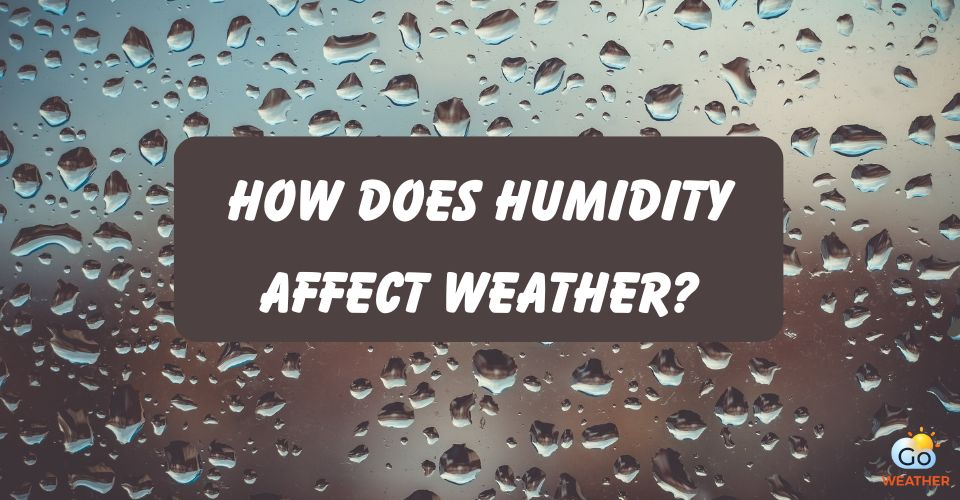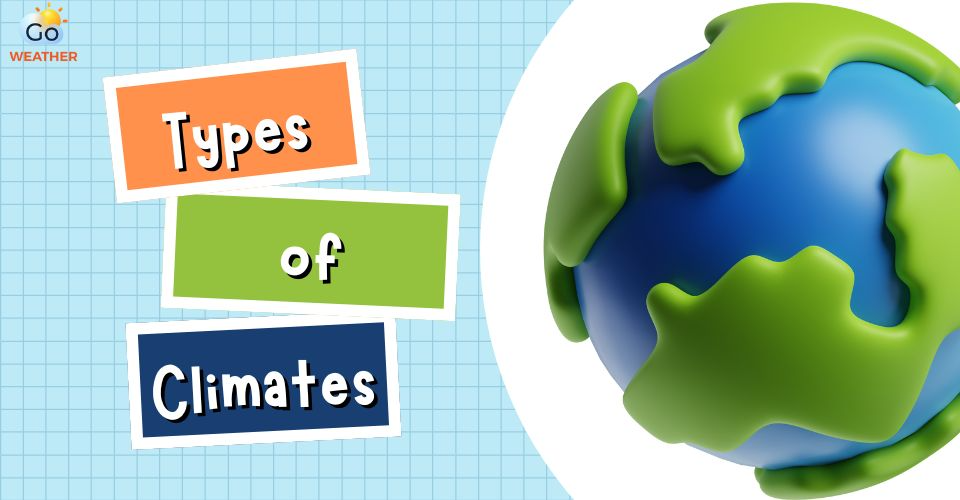Weather and Mood: What Do Researchers Say About This Relationship?
Many researchers have long been interested in the connection between weather and mood. Studies show that weather can significantly impact how we feel. In other words, does weather provide a vivid language for describing our emotions? Do gloomy days bring grey moods? When the temperature rises, do you easily get angry? In this post, we’ll explore how weather affects our moods together!
.jpg)
Weather and mood correlation
What Do Researchers Say About Weather and Mood?
A growing body of research found a strong relationship between mood and weather.
A German study in 1983 investigated how weather impacts our mood. In the study, people were called on rainy and sunny days to report their mood and general well-being.
Respondents said that they had higher levels of momentary happiness on sunny days and lower levels on rainy days.
An earlier study from 2011 that included 497 adolescents and their moms found that most people fit into one of four categories:
-
Summer lovers: Your mood improves in warm and sunny weather.
-
Summer haters: Your mood declines in warm and sunny weather.
-
Rain haters: Your mood declines on rainy days.
-
Unaffected: Weather doesn’t impact your mood much.
.jpg)
Research about weather and mood
Also investigating weather and mood, a 2013 study found that people surveyed on particularly sunny days showed higher levels of life satisfaction than those interviewed on normal days.
Although these feelings may seem fleeting and change from day to day, it does show that good weather can also affect our general mood.
How Does Weather Affect Mood?
A study in 1979 indicated that good weather can affect mood through symbolic associations.
Simply put, good weather can lift our moods by stimulating thoughts of activities like swimming or picnics, while cloudy days are often associated with disappointment, possibly caused by canceled plans and the discomfort of rain and snow.
The study done by Canadian researchers showed a strong link between Vitamin D and depression. Vitamin D is a necessary vitamin.
However, many people simply aren’t getting enough of it. The lower the vitamin D level, the greater chance of having depression.
.jpg)
Is there any correlation between weather and mood?
Sunny days and moods
Research on weather and mood showed that sunlight has been found to positively affect moods, dampen negative moods and mitigate tiredness.
Study done by Sydney’s Joseph Forgas shows that sunshine can also have an impact on our mental sharpness.
Shoppers coming out of a store were asked about 10 unusual objects—including a toy tractor and a pink piggy bank—that had been placed in the checkout area. They accurately recalled 7 times as many objects on cloudy days as sunny ones.
This effect is also in line with other findings that bad moods induce careful and systematic cognition.
Temperature also affects our mind and behavior. The more the temperature departs from the ideal of around 20°C, the more uncomfortable we feel.
A study found that the higher the temperature, the more likely people are to speak and act aggressively. Aggression rates are higher on hotter days and months.
.jpg)
Sunny weather and mood
Another excellent example of the relationship between weather and mood is the study of news media coverage of the 2008 Beijing Olympic Games.
It found that stories filed by American journalists contained more negative words on hotter days, even when they were writing about China in general rather than the Games in particular.
However, the effect of weather on mood is not simply biological. They are also psychological and social. One reason why hot weather is associated with aggression is that people interact more in public during hot weather.
Rainy Weather and Mood
It’s completely understandable If you feel down during a downpour: Bad weather can negatively affect your emotions.
According to one study, nearly 9% of people feel angrier and less happy on rainy days. Another showed that the number of negative social media posts increased.
Tecsia Evans, Ph. D., a clinical psychologist in private practice in San Francisco, says people are susceptible to loneliness and sadness when it gets dark and dreary.
It will be no surprise if you find yourself sad when it rains. It is the relationship between weather and mood.
► Read more: Predict weather with clouds
.jpg)
Weather and mood are a topic of interest
Don't worry, there is still a way to improve your mood when the rain is getting heavy.
Instead of turning off the lights and getting into bed when it's raining and doing nothing, turn on the lights and do the things you love like reading a book or laughing at your favorite comedy.
In the office, you can spend 5 minutes relaxing after every hour of work, such as listening to a song or chatting with colleagues. Research suggests that doing this can increase serotonin, which boosts excitement.
In addition, if you feel sad when the rain comes, get up and do some basic exercises and continue to sit at your desk or study. This is very beneficial for your mood as it increases the endorphins that make you feel a lot happier.
Check out our weather tips for workouts for the best results!
.jpg)
Research on weather and mood
And remember, never lock yourself in a room when it starts to rain. Connect with your friends, chat with them, make a date with your best friends to go out to watch the rain or even go dressed in spite of the rain.
It sounds weird, but these things will improve your mood a lot.
How Does the Weather Affect Mental Health?
The weather may impact more than just how you feel about the day. It can have long-term effects on your mental health, increase stress, and even make you more aggressive.
Seasonal affective disorder
.jpg)
Seasonal affective disorder
Seasonal affective disorder (SAD) causes bouts of depression that coincide with the winter or summer months.
Researchers are unsure of the specific origins of SAD, but how weather affects key biological processes in the body is likely to have a role.
Shorter days and less sunshine exposure in the winter, for example, can affect the quantities of hormones in the body that regulate mood, sleep, and circadian rhythms.
Stress levels
Stress arises when your body faces difficulty; harsh weather can cause mental and physical stress. Not only does your body have to adjust to being hot or cold, but you must also psychologically adapt to the changes that the weather causes.
For example, certain weather to travel conditions may result in frustrating delays if you have essential travel arrangements.
According to a 2020 literature review in the United Kingdom, extreme weather occurrences are linked to an increase in common mental health issues such as depression.
.jpg)
Weather and stress levels
Aggression
According to the " heat hypothesis, " hot temperatures appear to be associated with greater rates of aggression. Being heated can increase hostility by causing discomfort, impairing cognitive function, and competing for local resources.
According to a 2018 study, violence rates increased as temperatures rose. Furthermore, a study in 2023 in South Korea discovered that hotter temperatures were associated with a greater number of assault deaths.
Suicidal ideation
.jpg)
Weather may trigger suicidal ideation
Research states that suicide rates rise in the spring and early summer for unexplained causes.
Experts believe this result may be connected to sunlight-induced changes in brain chemistry, temperature-triggered mood episodes in mental health illnesses like bipolar disorder, and increased brain inflammation from seasonal environmental exposures.
How to Balance Mood When the Weather Changes?
You cannot influence the weather, but you can take proactive steps to reduce its impact on your mood.
Tips for dealing with weather-related mood shifts include:
-
Practice thankfulness to develop a cheerful mentality regardless of the weather.
-
Keep a symptom record to identify the exact weather changes that have the most impact on your mood.
-
Include regular stress reduction and wellness practices such as meditation, mindfulness, or mind-body arts.
.jpg)
Tips to balance the mood
-
Create a pleasant space in your house to enjoy indoor activities.
-
Go to the gym or find a workout video online to do inside your house.
-
Cook yourself or your family a delicious dinner.
-
Sleep well and keep up with your nighttime routine.
-
If it is raining, simply watch the rain, enjoy the sound, and be grateful to the water for feeding the environment.
Final Thoughts
Indeed, weather impacts how we feel. You can proactively change your plans when the weather suddenly strikes, create a list of activities and habits that can boost your moods, or learn the essence of the world's lifestyles to live peacefully with the weather. With the understanding of the weather and mood in mind, let’s practice the tips mentioned earlier to stay healthy!




![What Are Different Types of Precipitation and How They Form? [Updated]](https://admin.goweatherforecast.com/images/1732680922.png)
![The Importance of Weather Forecast and Wind Direction [Full Guide]](https://admin.goweatherforecast.com/images/1732689783.png)






1 Comments
Nam
Good
Leave a Comment
Your email address will not be published. Required fields are marked *